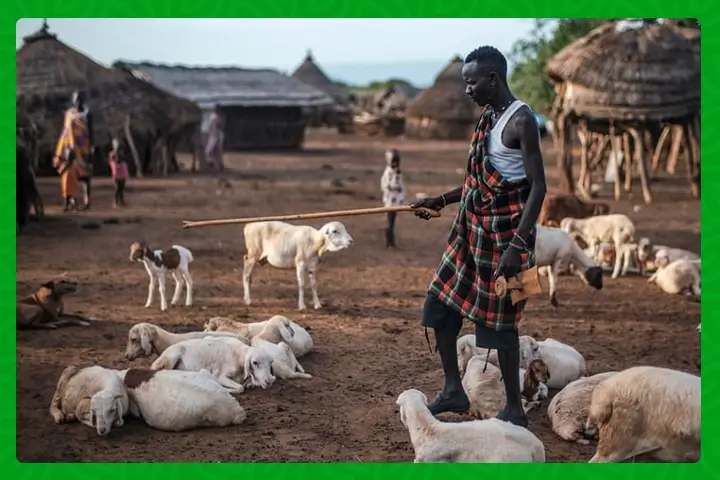
In the heart of South Sudan’s Kapoeta South County, Michael Lokuru Kuri, known as Lokuru, tends to his cattle with newfound peace. The challenges of conflict and prolonged dry seasons that once plagued his pastoralist community are being mitigated, thanks to a transformative initiative by the Food and Agriculture Organization of the United Nations (FAO) with funding from the African Development Bank (AfDB).
In a region where livestock is not just a source of livelihood but also a point of contention leading to conflicts, Lokuru’s community faced the risk of raids and water-related disputes. The solution came in the form of a 30,000 m3 reservoir and a solar-powered water pump installed by FAO. Powered sustainably by solar panels, the pump draws water from the reservoir, providing a lifeline for both the community and their livestock.
Previously, the prolonged dry season forced Lokuru to take his cattle far from his village for grazing, escalating tensions over water resources. The solar-powered water pump has transformed this reality. Lokuru notes, “Now we don’t need to take our animals to other locations for water because we have enough water for the animals.” This initiative has not only simplified their water collection process but also significantly reduced the risk of conflicts over water access.
Implemented as part of an initiative to enhance resilience and adaptive capacity in the face of climate change, the solar-powered water pump is a sustainable solution that aligns with the broader goals of ensuring food security and promoting community well-being. Meshack Malo, FAO Representative in South Sudan, emphasizes the urgency of addressing the country’s food insecurity, aggravated by conflicts and climate change.
For Lokuru and his community, climate change has manifested in cracked soil and withered crops on their fields. The changing weather patterns have taken a toll on agriculture, impacting their ability to harvest crops. In response, maintaining the health of their livestock becomes even more critical. With the solar-powered water pump providing clean water for the animals, Lokuru’s community can ensure the well-being of their livestock, a fundamental aspect of their livelihoods.
The initiative goes beyond water access; it includes training community workers like Lokuru in veterinary care. With the support of FAO, Lokuru has become a leader in his community, equipped with knowledge in administering vaccines, identifying diseases, and treating sick animals. He envisions passing on this knowledge to the youth, ensuring a sustainable legacy of expertise within the community.
In the face of food insecurity, climate challenges, and conflicts, the solar-powered water pump stands as a beacon of hope, empowering pastoralists like Lokuru to safeguard their livelihoods and contribute to the resilience of their communities.
Stay updated with the latest farming tips and agriculture industry news from Africa by subscribing to our newsletter. Don’t miss out on valuable insights and updates. Follow us on Twitter, LinkedIn, and Facebook to join our farming community and stay connected with us.



















